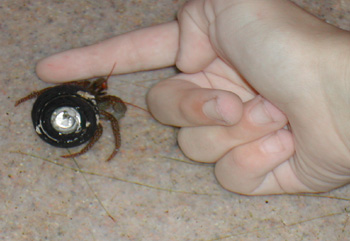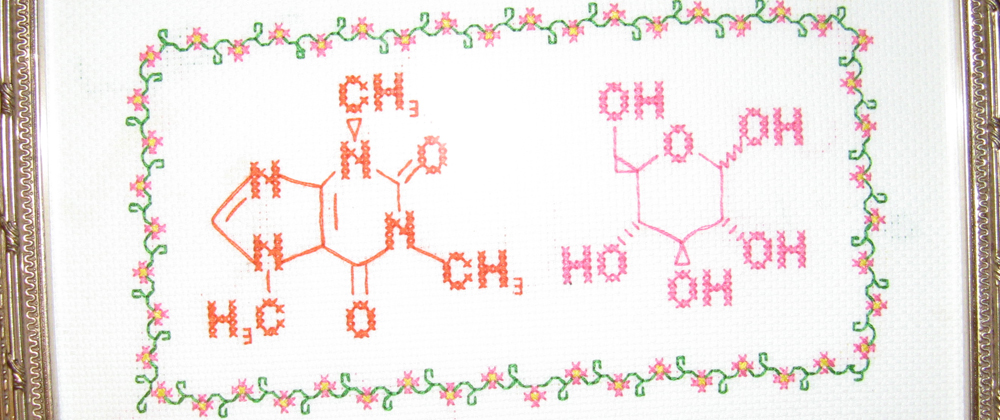The ScienceBlogs servers are undergoing some serious spa treatments this evening (Saturday, June 2nd, starting at 9PM EDT) to rejuvenate them and help them achieve inner peace.
Or something.
Their massage and facial package (or whatever) is projected to last about three hours, during which time the system won’t be able to accept new comments. Jot them down on paper and get them in tomorrow!
In the meantime, via my mom, there’s a cool streaming video you might want to check out of Nobel Prize winner John Mather giving a colloquium at NASA/Goddard Space Flight Center on November 21, 2006, before he flew out to Stockholm to receive his medal. (Click on the link near the top of the page that says “Video of John Mather’s special Scientific Colloquium (courtesy of the Goddard Library).”. You may need Windows Media Player to watch it.) Mom was “entertained by Mather’s ability to connect the dots for a more general audience.”
Further down the page, there’s a list of other colloquia given at GSFC whose streaming video you can access, but the Mather has Mom’s recommendation.
Is it a law of nature?
Today the soccer team I coach (on which the younger Free-Ride offspring is a player) had its last game of the spring season.
“Yay! Trophies!!” screamed the players at the end of the game. So, off we all went to the traditional end-of-season pizza party and trophy distribution event.
At the pizza parlor, as the players were running around and shaking down their parents for quarters, it hit me: All the pizza parlors in our area have quarter-gobbling arcade games. The one with the fewest has no fewer than four. The one where we were today had at least a dozen.
Now, we eat pizza at home without needing to play video games or foosball, let alone trying to navigate a claw to pick up some little plastic toy that will break, end up underfoot, or both within 48 hours. Why must every “dine-in” pizza experience occur against a backdrop reminiscent of the slot machines in the terminals at the Las Vegas Airport? I’m pretty sure it doesn’t enhance the flavor of the pizza.
I suppose I should be thankful that at least there were no giant singing rats.
I wonder if I can beg off of the elder offspring’s end-of-season pizza-and-skeeball party this evening.
Who’s in the club? Why does it matter?
I’m recycling another post from the ancestor of this blog, but I’m adding value by adding some newish links to good stuff on other blogs.
* * * * *
How much does it matter that certain groups (like women) are under-represented in the tribe of science?
I’m not, at the moment, taking up the causes (nor am I looking for any piss-poor “Barry Winters”-style theories as to the causes). At present, the bee in my bonnet is the effects.
Getting ethics to catch on with scientists.
I’ve been flailing lately (most recently in this post) with the question of how to reconcile how science ought to be done with what actually happens. Amidst my flailing, regular commenter DrugMonkey has been doing what some might characterize as getting up in my grill. I’m inclined to view DrugMonkey’s comments as pushing me to be clearer and more focused in setting out and attacking the problem.
For instance, in this post on the pros and cons of an ethics class aimed at science majors but taught by a philosopher (me), DrugMonkey comments:
The messenger is irrelevant. This is not the problem. The problem is the message of the “scientific ethics course”. Nobody (or at least, very few people) start off in science because it is a great place to cheat, fake data, sit on papers to rush one’s own work out, etc. So most people know, at some level, what the ethical conduct is supposed to be. Therefore the “ethics” class which repeats “don’t cheat” ad nauseum loses the audience.
The real question is why do otherwise well meaning scientists start to slip down the slope that ends up with outright data faking and other bad behavior? And then continue to self-justify with all the the usual garbage?
It is quite simple. because cheating pays off in this biz and one’s chances of getting caught are minimal. Notice how the cheaters who actually get driven out of science seem to be the ones with a huge track record of multiple fakes? Notice how when a lab is caught pretty much dead to rights with fakery, they just get away with saying it was a “mistake” or blame it on some postdoc who cannot (conveniently) be located or vigorously protests the retraction?
Is this cynical? no this is realistic. Does it mean that everyone cheats? no, probably it is still just a minority but really who knows? much of modern bioscience is essentially unreplicable, in part because novelty is so revered. until we get to the point where rigorous, meticulous, internally consistent, replicable and incrementally advancing science is respected more than the current Science/Nature type of paper, all contingencies drive towards bad behavior rather than good behavior.
when ethics classes start to deal with the realities of life and career and the motivations and contingencies at work, well, then they will be relevant. it won’t matter who teaches them…
My first reaction to this comment was, “DrugMonkey’s preferred approach is how I actually teach my ethics course!” My considered reaction was, “It’s time to go right to the heart of the problem and lay it out so clearly that people can’t fool themselves about what’s at stake.”
Which brings us to something that will read a bit like a manifesto.
Friday Sprog Blogging: sea creatures in the library!

Younger offspring: Can I tell you something awesome?
Dr. Free-Ride: OK.
Younger offspring: I touched every sea creature today, even the monkeyface pickleback eel.
Dr. Free-Ride: But you didn’t have a field trip today. How were there sea creatures for you to touch?
A few announcements.
- The Society of Women Engineers is hosting an event on June 3rd that may be of interest to girls (or their parents) in the Twin Cities area:
On June 3rd, hundreds of girls in St. Paul, Minnesota will attend an event hosted by SWE called, “Wow! That’s Engineering!” Through hands-on activities, girls will learn how solar power works, the wonders of deep sea diving, and even develop their own lip-gloss. Most importantly, they’ll realize that engineering is not just about working behind a computer; it’s about making a difference in the world.
This looks to be aimed at middle school and high school students. Spread the word.
- Tomorrow being the 1st of June already (how??), the 7th edition of the Scientiae carnival will appear at FemaleCSGradStudent. The theme for this round of stories of and from women in science, engineering, technology and math will be “How We Are Hungry,” so it should make for delectable reading.
- Finally, I’d like to call your attention to the Seed 2007 Science Writing Contest. The first prize is $2,500 and second prize is $1,000 for the best 1200-word essay on the following questions:
What does it mean to be scientifically literate in the 21st century? How do we measure the scientific literacy of a society? How do we boost it? What is the value of this literacy? Who is responsible for fostering it?
The submission deadline is July 1, which is right around the corner. I can’t enter (what with my ties to Seed), but maybe you can*. If you were to win, I’d probably assert bragging rights!
Any other events, contests, carnivals, or whatnot we should know about? Lay them on me.
______
*Because of the laws on contests and sweepstakes, I’m sorry to report that only entries from the U.S. will be eligible to win. Boo!
Commencement LOLdrums
I want to lay this at Julie’s feet, or maybe John Lynch’s, but I’m starting to think the LOLcats are taking over! My kids speak to each other in LOL dialect, and I’ve been mentally captioning … well, everything.
My internal dialogue from part of commencement transcribed below. If you know a good deprogrammer, please email me!
Is it arrogant to want to use our scientific knowledge?
Perhaps you heard Steve Inskeep’s interview with NASA administrator Michael Griffin on Morning Edition this morning. Perhaps you also are trying to tease out the logical consequences of this statement he made about climate change:
I have no doubt that … a trend of global warming exists. I am not sure that it is fair to say that it is a problem we must wrestle with. To assume that it is a problem is to assume that the state of Earth’s climate today is the optimal climate, the best climate that we could have or ever have had and that we need to take steps to make sure that it doesn’t change. First of all, I don’t think it’s within the power of human beings to assure that the climate does not change, as millions of years of history have shown. And second of all, I guess I would ask which human beings — where and when — are to be accorded the privilege of deciding that this particular climate that we have right here today, right now is the best climate for all other human beings. I think that’s a rather arrogant position for people to take.
A question for those of you who talk to kids.
Although this question is somewhat connected to issues from the previous post, it’s a question I’ve been meaning to put out there for some time:
Resisting scientific ideas.
In the May 18th issue of Science, there’s a nice review by Paul Bloom and Deena Skolnick Weisberg [1] of the literature from developmental psychology that bears on the question of why adults in the U.S. are stubbornly resistant to certain scientific ideas.
Regular readers will guess that part of my interest in this research is connected to my habit of trying to engage my kids in conversations about science. Understanding what will make those conversations productive, in both the short-term and the long-term, would be really useful. Also, I should disclose that I’m pals with Deena (and with her spouse). When a friend coauthors an interesting paper (published in Science), why wouldn’t I blog about it?
I’ll run through the main points from developmental psychology research that the review identifies as important here, and then I’ll weigh in with some thoughts of my own.



